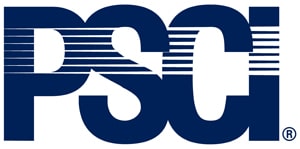Defining Hard Skills and Soft Skills
Understanding the difference between hard skills and soft skills is essential for career progression. Both skill sets are critical, but they serve different functions in a professional context.
Hard Skills
Hard skills are the technical abilities and knowledge required for specific tasks. They are often acquired through formal education, training, or direct experience. These skills are quantifiable and crucial for job competency. Examples include:
- Technical Proficiency: Such as computer programming, machinery operation, or software use.
- Certifications and Degrees: Specific qualifications like a CPA for accountants or a PMP for project managers.
- Language Skills: Being fluent in multiple languages for roles in international business.
- Marketing Skills: Expertise in digital marketing tools and strategies.
Soft Skills
Soft skills refer to personal attributes and interpersonal skills. These are less about technical knowledge and more about how you interact and collaborate with others. Key soft skills include:
- Leadership: The ability to inspire and lead teams.
- Emotional Intelligence: Understanding and managing your emotions and those of others.
- Conflict Resolution: The ability to resolve disagreements effectively and amicably.
- Creativity: Being able to think outside the box and generate innovative ideas.
Visual Comparison Table
| Hard Skills | Soft Skills |
|---|---|
| Learned through education and experience | Developed through personal growth and interaction |
| Technical and job-specific | Relational and behavioral |
| Quantifiable and testable | Qualitative and often subjective |
| Essential for task execution | Crucial for teamwork and workplace harmony |
Using the MECE (Mutually Exclusive, Collectively Exhaustive) framework, we categorize and understand these skills distinctly. While hard skills may qualify you for a job, soft skills are often key in determining how effectively you perform in a team and progress in your career. PSCI advocates a balanced development of both sets of skills for a well-rounded professional portfolio.
The Growing Importance of Soft Skills
In today’s evolving job market, the significance of soft skills is increasing rapidly. PSCI acknowledges this trend as crucial for career development and organizational success.
Statistics on Demand for Soft Skills
Recent studies and surveys have highlighted a growing demand for soft skills:
- A LinkedIn survey found that 92% of HR professionals believe soft skills are equally or more important than hard skills.
- According to the World Economic Forum, emotional intelligence, a key soft skill, will be among the top 10 job skills in 2022 and beyond.
- A report by Deloitte suggests that two-thirds of all jobs will rely heavily on soft skills by 2030.
Reasons Soft Skills are Becoming More Critical
Several factors contribute to the escalating importance of soft skills in the workplace:
- Technological Advancements: As automation and AI take over more technical tasks, human-centric skills like creativity, problem-solving, and emotional intelligence become more valuable.
- Workplace Dynamics: In a globalized world, the ability to communicate effectively and work within diverse teams is crucial.
- Leadership and Management: Soft skills are essential for effective leadership and management, fostering better team dynamics and workplace efficiency.
- Adaptability and Change Management: In rapidly changing industries, the ability to adapt, learn, and manage change is vital, all of which are grounded in soft skills.
Understanding and developing these skills are becoming imperative for professionals. While hard skills may get you the job, soft skills are what make you excel in it. They enhance not only individual performance but also contribute significantly to the success of the organization.
Identifying Your Hard Skills and Soft Skills
Recognizing your own set of hard and soft skills is a critical step in personal and professional development. PSCI emphasizes the importance of self-awareness in this process, which can be achieved through self-assessment and feedback from others.
Self-Assessment Tips
To identify your hard and soft skills:
- Review Your Experiences: Look back at your job roles, projects, and education. List out the specific tasks you excelled at or enjoyed. This can include anything from data analysis to conflict resolution.
- Consider Your Achievements: Think about your accomplishments and what skills helped you achieve them. For instance, completing a complex project on time may highlight your project management and teamwork skills.
- Reflect on Challenges: Consider situations where you faced challenges. What skills did you use to overcome them? This reflection can reveal strengths in problem-solving or adaptability.
- Use Skill Assessment Tools: Online tests and assessments can help you identify a wide range of skills you might possess.
Getting Feedback from Others
Feedback from colleagues, managers, or mentors can provide an external perspective on your skill set:
- Ask for Specific Examples: Request feedback on particular projects or tasks. This can help pinpoint where your hard and soft skills shine.
- Seek Constructive Criticism: Encourage honest feedback about areas for improvement, which can also indicate the skills you need to develop.
- Professional Reviews: Utilize performance reviews or 360-degree feedback mechanisms at your workplace for a comprehensive understanding of your skills.
By combining self-assessment with feedback from others, you gain a well-rounded view of your hard and soft skills. PSCI advocates for this holistic approach as it not only helps in identifying your current skill set but also guides your future skill development path.
Developing Hard Skills and Soft Skills
To thrive in today’s competitive job market, a well-rounded skill set encompassing both hard skills and soft skills is vital.
Learning Technical Skills through Classes, Certifications
Hard skills are typically acquired through more formalized training:
- Enroll in Educational Courses: Online or in-person classes in fields like IT, marketing, or finance can build foundational knowledge.
- Obtain Professional Certifications: Certifications in areas like project management (PMP) or coding languages (Python, Java) add credibility.
- Hands-On Experience: Practical experience, such as internships or project work, is invaluable for applying theoretical knowledge.
- Regular Upgradation: Stay updated with new tools and technologies in your field through webinars and workshops.
Improving Soft Skills through Behavioral Changes
Soft skills development is more introspective and involves consistent practice:
- Identify Key Areas: Recognize which soft skills (like communication, teamwork, or adaptability) you need to develop.
- Active Learning: Engage in activities that challenge these skills, like public speaking clubs or team-based volunteering.
- Feedback and Reflection: Regularly seek and reflect on feedback from colleagues and mentors.
- Behavioral Adjustments: Implement changes in your daily professional behavior to gradually improve these skills.
- Mindfulness and Empathy Training: Practices like mindfulness can enhance emotional intelligence, a key soft skill.
By focusing on both hard and soft skills, professionals can create a comprehensive skill set that caters to the evolving demands of the modern workplace. PSCI emphasizes this balanced approach, recognizing the unique roles these skills play in career growth and professional success.
Showcasing Your Skills Effectively
On Your Resume
When presenting skills on your resume, PSCI recommends a strategic approach to highlight both your hard and soft skills effectively.
- Quantify Hard Skills: List specific hard skills relevant to the job you’re applying for. Use quantitative measures like proficiency levels or certifications to add credibility. For instance, “Proficient in Adobe Photoshop, Certified Java Developer.”
- Incorporate Soft Skills in Descriptions: Weave soft skills into your job descriptions and achievements. Instead of merely listing them, show how they were applied, like “Led a team of 10 in a successful project, demonstrating strong leadership and teamwork skills.”
- Use Keywords: Tailor your resume to include keywords from the job description. This makes it easier for applicant tracking systems to recognize your suitability for the role.
In Job Interviews
In interviews, effectively showcasing your skills can make a significant difference:
- Prepare Examples: Have concrete examples ready that demonstrate your hard skills. Discuss projects or tasks where you applied these skills successfully.
- Tell Stories for Soft Skills: Use the STAR (Situation, Task, Action, Result) method to describe situations where your soft skills played a key role. For instance, how your communication skills resolved a client issue.
- Balance the Conversation: Ensure you discuss both types of skills. Even if the interview focuses more on technical abilities, find opportunities to mention your soft skills.
- Ask Insightful Questions: Demonstrate your critical thinking and engagement by asking thoughtful questions about the role, team dynamics, or company culture.
- Be Mindful of Non-Verbal Communication: Soft skills also include body language. Maintain eye contact, and show confidence and enthusiasm through your posture and expressions.
By showcasing your hard and soft skills effectively on your resume and in interviews, you can present a well-rounded and compelling case for your candidacy. PSCI understands that both skill sets are equally important in securing and succeeding in a role.
Finding the Optimal Balance of Hard Skills and Soft Skills
Achieving the right mix of hard skills and soft skills is crucial in today’s dynamic job market. PSCI emphasizes that the ideal balance often depends on the specific industry and role, along with the ability to showcase transferable skills.
Ideal Mix Depends on Industry and Role
The demand for hard skills versus soft skills can vary greatly across different industries and job roles:
- Tech-Heavy Industries: In fields like IT or engineering, hard skills may take precedence. However, soft skills like problem-solving and teamwork are increasingly recognized for their role in driving innovation and collaboration.
- Service-Oriented Sectors: In areas like hospitality or customer service, soft skills such as communication and empathy are paramount, though hard skills related to the industry remain important.
- Leadership Roles: Management positions often require a strong blend of both. Hard skills ensure understanding of the technical aspects of the business, while soft skills are crucial for leading teams and strategic planning.
Showcasing Transferable Skills
- Identify Transferable Skills: Recognize skills that are valuable across various jobs and industries. For example, effective communication is a soft skill that is beneficial in virtually any role.
- Adapt to the Job Requirements: Tailor your skillset according to the job you’re applying for. Highlight the skills most relevant to the job description.
- Continuous Learning: Stay adaptable by continuously developing both types of skills. Participate in training and development programs or seek opportunities for self-improvement.
- Self-Assessment: Regularly assess your skills and identify areas for growth. This will help you maintain a balance and remain competitive in the job market.
Finding the right balance between hard and soft skills can make you a more versatile and attractive candidate, better equipped to navigate the complexities of modern work environments. PSCI advocates for a holistic approach to skill development, ensuring professionals are well-rounded and adaptable.
FAQ
Frequently asked questions on the topic of Hard Skills vs Soft Skills provide insights into how to effectively understand, develop, and balance these skills for career advancement. PSCI is here to guide you through this.
- What’s the difference between hard skills and soft skills?
- Hard skills are technical abilities or knowledge specific to a particular job, acquired through education or training. Soft skills are interpersonal abilities and personal attributes, such as communication, teamwork, and problem-solving.
- Can soft skills be as important as hard skills?
- Yes, in many industries, soft skills are equally, if not more important than hard skills. They are crucial for teamwork, leadership, and adapting to workplace changes.
- How can I improve my hard skills?
- Continual learning through courses, certifications, and practical experience is key. Stay updated with industry trends and new technologies relevant to your field.
- What are some effective ways to develop soft skills?
- Practice, feedback, and self-reflection are essential. Engage in activities that challenge your communication, leadership, and teamwork abilities. Seek mentorship or coaching if possible.
- How do I showcase my soft skills during a job application?
- Use real-life examples in your resume and interviews. Highlight situations where your soft skills played a key role in achieving results.
- Are hard skills more important for technical roles?
- While hard skills are crucial for technical roles, soft skills like problem-solving and adaptability are increasingly becoming vital in these areas too.
- Can I measure my soft skills?
- Soft skills are more subjective, but self-assessment tools, feedback from peers, and personal reflection can provide insights into your soft skills.
Call to Action: For personalized advice on developing and showcasing your hard and soft skills for career advancement, contact PSCI by phone at (302) 479-9700 or through email, info@psci.com. Our experts are ready to assist you in navigating your professional growth journey.









